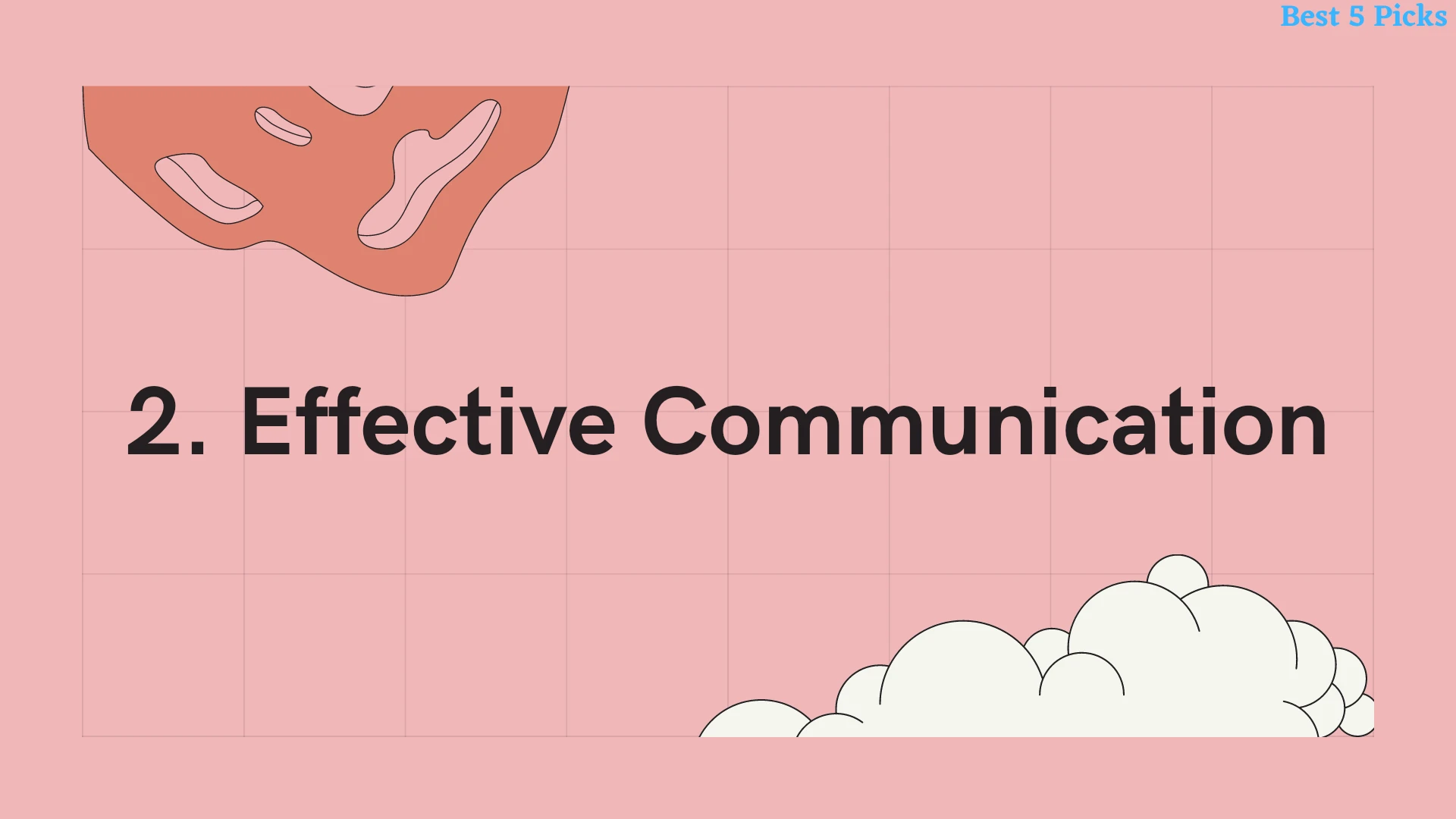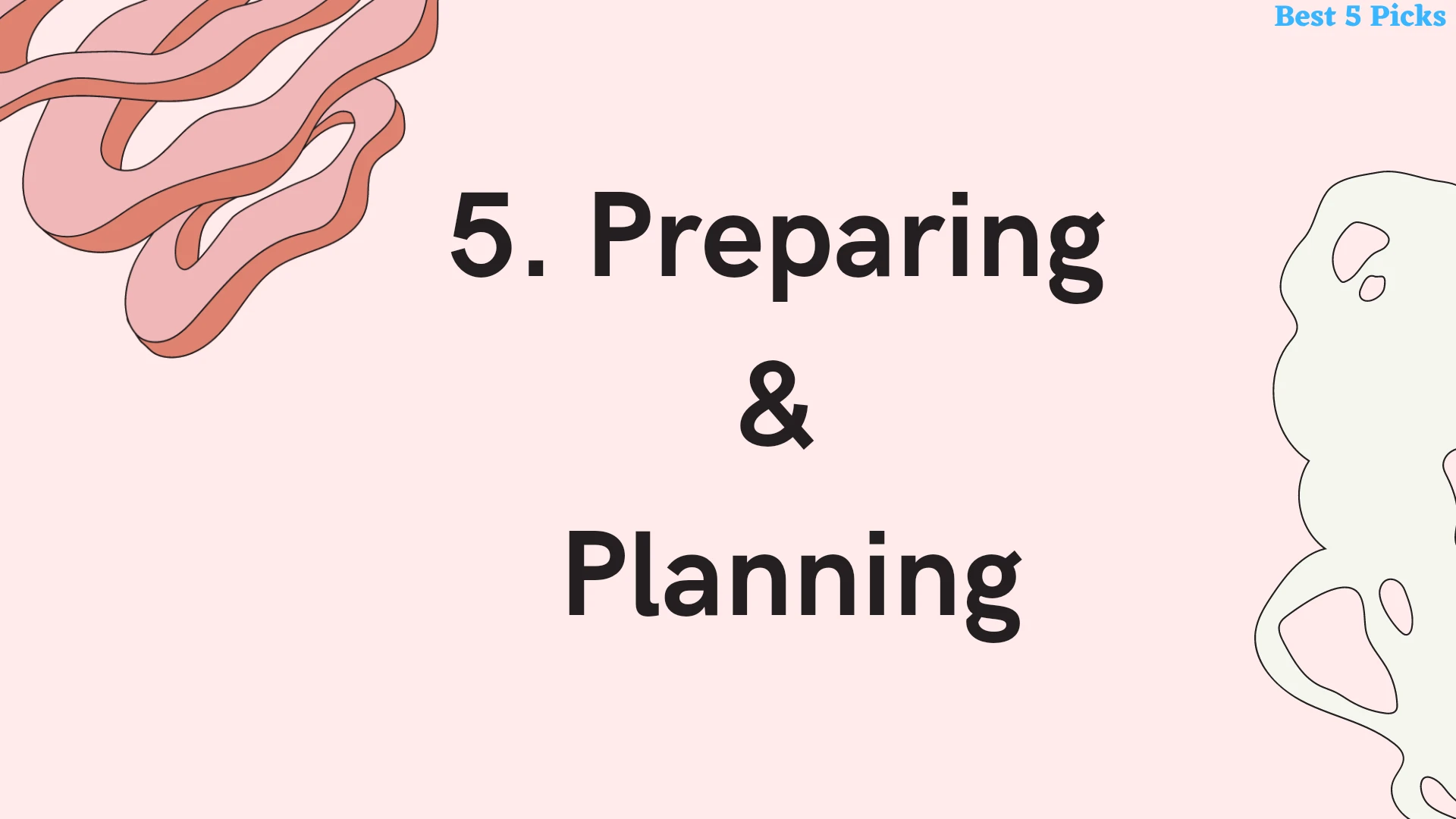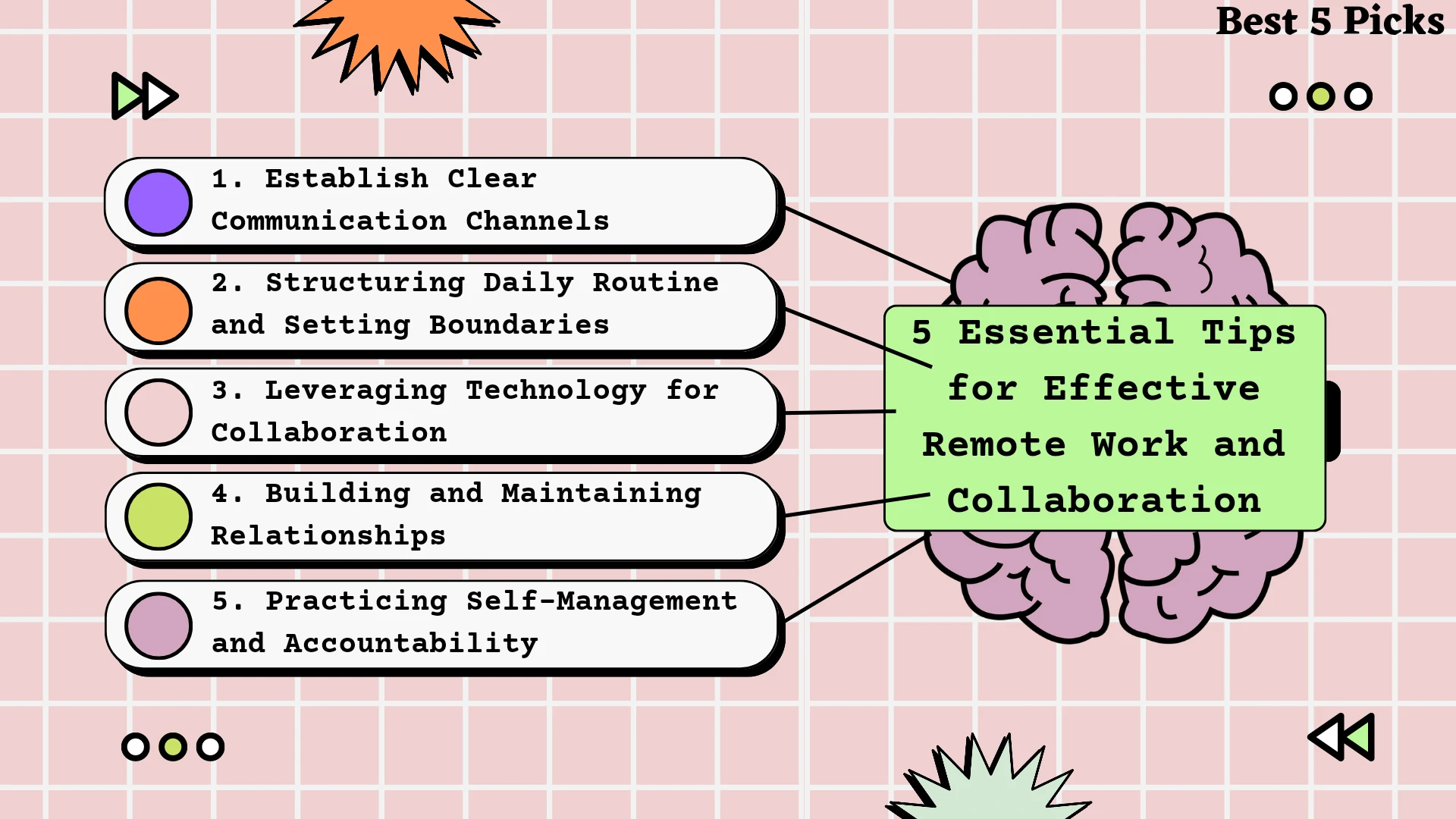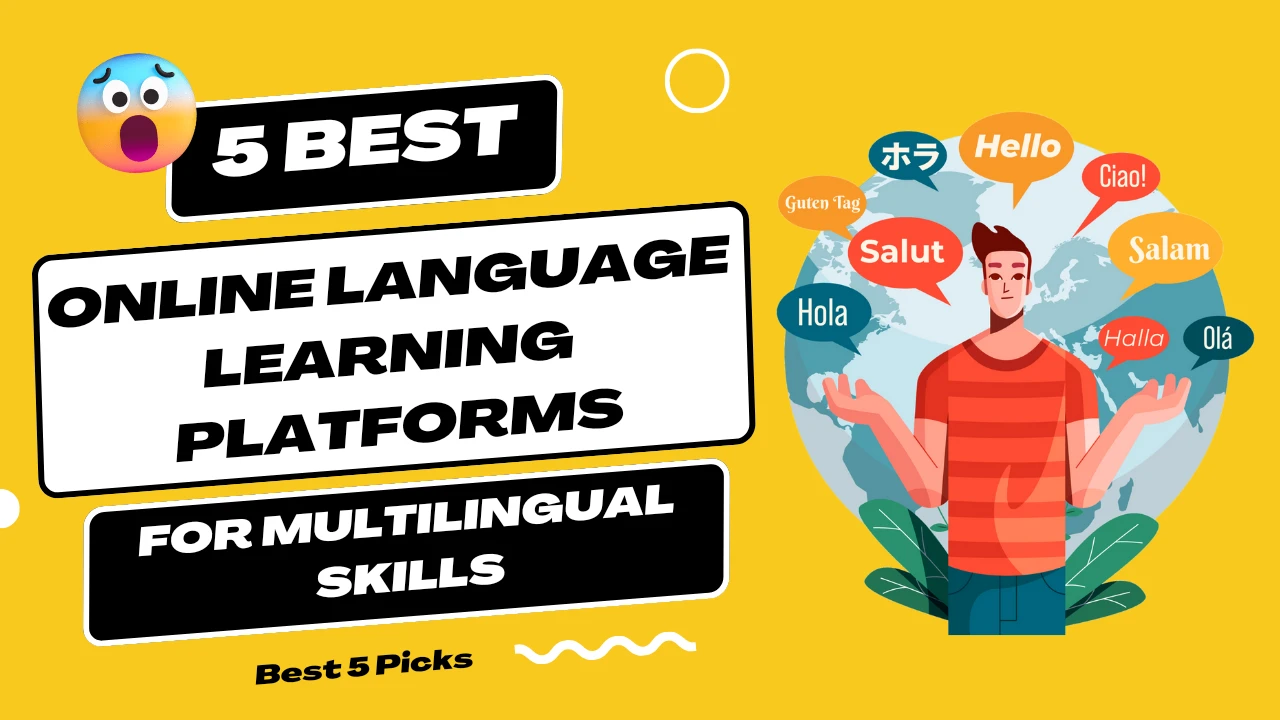Learn the art of negotiation and conflict resolution with these five essential tips. In today’s dynamic world, mastering these skills can be pivotal in both personal and professional spheres.
Discover how to navigate challenging conversations and reach mutually beneficial agreements with confidence and finesse.
In this article, we delve into practical strategies for effective negotiation and conflict resolution. From active listening to fostering empathy, each tip is designed to empower you with the tools needed to navigate disagreements constructively.
Are You In Hurry? Then Check Out Below!
Whether you’re dealing with a workplace dispute or a familial disagreement, these insights will help you foster understanding and achieve resolution.
I. Introduction
Unleash Your Negotiation Power! Discover 5 Must-Know Tips for Conflict Resolution. Master the Art of Getting What You Want. Click Now!
A. Importance of negotiation and conflict resolution
- Negotiation and conflict resolution skills are crucial in personal and professional settings.
- They help individuals and organizations reach mutually beneficial agreements and avoid unnecessary disputes.
- Effective negotiation and conflict resolution contribute to improved relationships, increased productivity, and better outcomes.
B. Overview of the article’s purpose
- The purpose of this article is to provide readers with five essential tips for effective negotiation and conflict resolution.
- By following these tips, individuals can enhance their ability to handle conflicts and negotiate successful resolutions.
- The article aims to equip readers with practical strategies and techniques that can be applied in various situations, from everyday interactions to more formal negotiations.
- Ultimately, the goal is to empower readers to navigate conflicts and negotiations with confidence and achieve positive outcomes.
II. 5 Tips for Effective Negotiation and Conflict Resolution
Learn five essential tips for effective negotiation and conflict resolution in this article. Discover the importance of understanding interests and needs, identifying common ground, and managing conflicting interests.
Explore strategies for effective communication, collaborative problem-solving, and seeking win-win outcomes. Gain insights into managing emotions, building rapport, and handling conflicts constructively.
Lastly, learn the significance of preparing and planning, including developing a negotiation strategy. Enhance your negotiation and conflict resolution skills for personal and professional success.
1. Understand the Interests and Needs

A. Define the interests and needs of all parties involved
- Take the time to identify and understand the underlying interests and needs of each party in the negotiation or conflict.
- Interests are the underlying motivations and desires that drive individuals’ positions and actions.
- Needs are the essential requirements or desired outcomes that individuals are seeking to fulfill.
- Engage in open and honest communication to gain insight into the interests and needs of all parties.
- Ask clarifying questions and actively listen to ensure a comprehensive understanding.
- Consider both the tangible and intangible aspects that may be influencing the parties’ interests and needs.
- Recognize that interests and needs may evolve throughout the negotiation process, so remain adaptable and open to new information.
B. Identify common ground and areas of potential agreement:
- Look for areas of shared interests and common ground among the parties involved.
- Common ground refers to the points or issues on which all parties can find agreement or have similar objectives.
- Identify shared goals, values, or concerns that can serve as a foundation for reaching mutually beneficial solutions.
- Focus on finding win-win outcomes that satisfy the interests and needs of all parties involved.
- Look for creative solutions that address the concerns of each party while maximizing mutual benefits.
- Explore options and alternatives that can bridge differences and create opportunities for agreement.
- Emphasize collaboration and cooperation rather than a competitive or adversarial approach.
- By identifying common ground and areas of potential agreement, you can foster a more constructive and productive negotiation or conflict resolution process.
C. Determine any conflicting interests and needs
- Alongside identifying common ground, it is crucial to recognize and address conflicting interests and needs.
- Conflicting interests arise when the desires or objectives of different parties are in opposition to each other.
- Conflicting needs refer to situations where meeting one party’s needs may hinder the fulfillment of another party’s needs.
- Acknowledge and openly discuss the areas of disagreement or potential conflicts.
- Seek to understand the reasons behind conflicting interests and needs to gain insight into each party’s perspective.
- Look for opportunities to find creative solutions or compromises that can address conflicting interests.
- Consider the possibility of trade-offs or finding alternative ways to meet the needs of all parties involved.
- By addressing conflicting interests and needs directly, you can work towards finding a balanced and satisfactory resolution for all parties.
5 Essential Tips for Effective Negotiation and Conflict Resolution in this article. Discover the importance of understanding interests and needs, identifying common ground, and managing conflicting interests. So next tips is Effective Communication.
2. Effective Communication

A. Active listening and empathy
- Active listening involves fully engaging and focusing on what the other person is saying.
- Give your undivided attention, maintain eye contact, and avoid distractions.
- Show genuine interest by nodding, using verbal cues like “uh-huh” or “I understand,” and providing appropriate responses.
- Seek to understand the speaker’s perspective, emotions, and underlying needs.
- Practice empathy by putting yourself in the other person’s shoes and seeing the situation from their point of view.
- Avoid interrupting or jumping to conclusions before the speaker has finished expressing their thoughts.
- Ask clarifying questions to ensure you have a clear understanding of their message.
- Reflect back on what you’ve heard to confirm your understanding and show that you value their input.
- Active listening and empathy create a supportive and collaborative environment, fostering better communication and building trust between parties involved in negotiation or conflict resolution.
B. Clear and concise expression of ideas
- Clear and concise communication is essential for effective negotiation and conflict resolution.
- Clearly express your ideas, opinions, and perspectives in a concise manner to ensure clarity and understanding.
- Avoid ambiguous or convoluted language that may lead to misunderstandings.
- Use simple and straightforward language, focusing on the key points and main ideas.
- Organize your thoughts and structure your communication in a logical and coherent manner.
- Be mindful of the other party’s understanding and adjust your communication style accordingly.
- Use examples or visuals when necessary to enhance clarity and facilitate comprehension.
- Pay attention to non-verbal communication cues, such as body language and tone of voice, to support your message.
- By practicing clear and concise expression of ideas, you can foster effective communication and facilitate productive discussions during negotiation and conflict resolution processes.
C. Non-verbal communication cues
- Non-verbal communication plays a significant role in effective negotiation and conflict resolution.
- Pay attention to non-verbal cues such as facial expressions, body language, gestures, and tone of voice.
- Maintain eye contact to show attentiveness and engagement.
- Use open and inviting body language to create a comfortable and cooperative atmosphere.
- Be mindful of your own non-verbal cues to ensure they align with your intended message.
- Interpret and respond to the non-verbal cues of the other parties to better understand their emotions and reactions.
- Non-verbal cues can provide valuable insights into the underlying feelings and attitudes of the parties involved.
- By being aware of and appropriately utilizing non-verbal communication cues, you can enhance understanding, build rapport, and create a positive environment for effective negotiation and conflict resolution.
D. Use of open-ended questions
- Open-ended questions are questions that cannot be answered with a simple “yes” or “no” and encourage detailed responses.
- They promote dialogue, encourage the sharing of thoughts and feelings, and foster a deeper understanding of the other party’s perspective.
- Use open-ended questions to gather more information, explore underlying interests, and uncover potential solutions.
- Examples of open-ended questions include “Can you tell me more about your concerns?”, “What options do you think we should consider?”, and “How do you envision a successful resolution?”
- Avoid relying solely on closed-ended questions, as they limit the conversation and may hinder effective communication.
- Active listening is essential when using open-ended questions, as it allows you to fully understand and respond to the other party’s answers.
- By utilizing open-ended questions, you create an environment that promotes dialogue, understanding, and collaboration, leading to more effective negotiation and conflict resolution.
5 Essential Tips for Effective Negotiation and Conflict Resolution in this article. Discover the importance of understanding interests and needs, identifying common ground, and managing conflicting interests. So next tips is Collaborative Problem-Solving.
3. Collaborative Problem-Solving

A. Focus on interests, not positions
- When engaging in collaborative problem-solving, it is important to shift the focus from positions to interests.
- Positions are specific solutions or demands put forth by the parties, whereas interests represent the underlying motivations and needs.
- By focusing on interests, you can uncover the reasons behind the positions and explore alternative solutions that address those interests.
- Engage in open and honest discussions to understand the interests of all parties involved.
- Look for common interests and shared goals that can serve as a basis for finding mutually beneficial solutions.
- Encourage all parties to articulate their interests and actively listen to ensure a comprehensive understanding.
- Once the interests are identified, brainstorm and explore various options and possibilities that satisfy those interests.
- By focusing on interests rather than rigid positions, you create a collaborative environment that promotes creative problem-solving and increases the chances of reaching a satisfactory resolution for all parties involved.
B. Brainstorming and generating creative solutions
- Brainstorming is a technique that involves generating a wide range of ideas and potential solutions without judgment or evaluation.
- Encourage all parties to contribute their ideas and perspectives during the brainstorming process.
- Create a safe and inclusive environment where everyone feels comfortable sharing their thoughts and suggestions.
- Emphasize quantity over quality during the initial brainstorming phase to stimulate creativity and explore different possibilities.
- Build upon and combine ideas to generate innovative and unique solutions.
- Encourage out-of-the-box thinking and challenge conventional assumptions or approaches.
- Consider using techniques such as mind mapping, role-playing, or visual aids to enhance the brainstorming process.
- Evaluate and refine the generated ideas collectively, focusing on feasibility, impact, and alignment with the parties’ interests and needs.
- By engaging in collaborative brainstorming and generating creative solutions, you can unlock new possibilities and find innovative ways to address the underlying issues and reach mutually beneficial outcomes.
C. Encouraging active participation from all parties
- Actively involving all parties in the negotiation or conflict resolution process is crucial for fostering a collaborative environment.
- Create an inclusive atmosphere where everyone feels comfortable expressing their thoughts, concerns, and ideas.
- Encourage active participation by giving each party an opportunity to speak and contribute to the discussion.
- Listen attentively to each person’s input and show respect for their perspectives, even if they differ from your own.
- Use facilitation techniques such as round-robin discussions or structured brainstorming sessions to ensure equal participation.
- Avoid dominating the conversation or allowing one party to monopolize the discussion.
- Consider establishing ground rules or guidelines to ensure that all parties have a chance to be heard and contribute meaningfully.
- By actively involving all parties in the negotiation or conflict resolution process, you enhance the likelihood of reaching a mutually satisfactory outcome and promote a sense of ownership and commitment to the resolution.
D. Seeking win-win outcomes
- A win-win outcome is a resolution that satisfies the interests and needs of all parties involved.
- Instead of focusing on a win-lose mentality, collaborative problem-solving aims to find solutions that benefit everyone.
- Prioritize mutual gains and shared benefits when exploring potential resolutions.
- Look for creative alternatives and options that can meet the interests and needs of all parties simultaneously.
- Foster an atmosphere of cooperation, trust, and open communication to encourage collaboration.
- Encourage brainstorming and idea generation to explore a wide range of possibilities.
- Be open to considering perspectives and ideas different from your own and be willing to compromise when necessary.
- Aim for solutions that address the concerns and objectives of all parties, leading to a sustainable and satisfactory outcome.
- By seeking win-win outcomes, you foster positive relationships, promote long-term cooperation, and create a foundation for future problem-solving and conflict resolution.
5 Essential Tips for Effective Negotiation and Conflict Resolution in this article. Discover the importance of understanding interests and needs, identifying common ground, and managing conflicting interests. So next tips is Managing Emotions and Building Rapport.
4. Managing Emotions and Building Rapport

A. Emotional intelligence and self-awareness
- Emotional intelligence refers to the ability to recognize, understand, and manage your own emotions and the emotions of others.
- Develop self-awareness by understanding your own emotions, triggers, and biases that may impact your negotiation or conflict resolution process.
- Recognize and manage your emotions effectively to prevent them from interfering with the communication and decision-making process.
- Cultivate empathy towards others by considering their emotions and perspectives.
- Practice active listening and observe non-verbal cues to better understand the emotions of others.
- Use emotional intelligence to regulate your own reactions, maintain composure, and respond appropriately to emotional situations.
- Building rapport involves establishing a positive and trusting relationship with the other party.
- Show respect, listen attentively, and demonstrate understanding to create a safe and collaborative environment.
- Find common ground and shared interests to foster rapport and build bridges between parties.
- Building rapport helps create an atmosphere of cooperation, open communication, and mutual respect, which facilitates effective negotiation and conflict resolution.
B. Remaining calm and composed
- It is crucial to maintain a calm and composed demeanor during negotiation and conflict resolution.
- Emotions can escalate conflicts and hinder effective communication and problem-solving.
- Practice emotional intelligence and self-awareness to recognize and regulate your own emotions.
- Take deep breaths, pause, and reflect before responding to any provocation or triggering statements.
- Use techniques such as mindfulness or visualization to manage stress and stay centered.
- Focus on the issue at hand rather than personal attacks or irrelevant emotions.
- Maintain a respectful and professional tone, even in the face of challenging situations.
- Remaining calm and composed can help defuse tension, promote rational thinking, and enable clearer communication.
- It also sets a positive example and encourages others involved in the negotiation or conflict to respond in a similar manner.
- By managing emotions effectively, you create an environment conducive to productive dialogue and problem-solving, leading to better outcomes.
C. Building trust and rapport
- Building trust and rapport is essential in effective negotiation and conflict resolution.
- Trust is the foundation of any successful relationship, as it fosters open communication and cooperation.
- Establish a positive and respectful tone from the beginning to create a conducive environment for trust to flourish.
- Demonstrate empathy and understanding towards the concerns and emotions of the other parties.
- Be transparent and honest in your communication, avoiding hidden agendas or manipulative tactics.
- Act with integrity and follow through on commitments and agreements.
- Foster active listening and show genuine interest in the perspectives and needs of others.
- Find common ground and shared interests to create a sense of collaboration and cooperation.
- Recognize and acknowledge the contributions and viewpoints of others, even if you disagree.
- Building rapport involves building a positive relationship based on mutual respect, empathy, and understanding.
- By actively working on building trust and rapport, you can create an environment that encourages open dialogue, problem-solving, and constructive conflict resolution.
D. Managing conflict constructively
- Conflict is a natural part of negotiation and resolution processes, and managing it constructively is essential.
- Encourage open dialogue and create a safe space for expressing emotions and concerns.
- Emphasize active listening and empathy to understand the emotions and perspectives of all parties involved.
- Remain calm and composed, even in the face of heightened emotions or disagreements.
- Avoid personal attacks or criticism and focus on addressing the issues at hand.
- Use constructive language and maintain a respectful tone throughout the process.
- Look for areas of common ground and shared interests to build rapport and trust.
- Collaborate on finding mutually agreeable solutions and be willing to consider different viewpoints.
- If conflicts escalate, consider involving a neutral third party or mediator to help facilitate the resolution process.
- By managing conflict constructively, you can prevent further escalation, maintain positive relationships, and create an environment conducive to finding effective resolutions.
5 Essential Tips for Effective Negotiation and Conflict Resolution in this article. Discover the importance of understanding interests and needs, identifying common ground, and managing conflicting interests. So next tips is Preparing and Planning.
5. Preparing and Planning

A. Gathering relevant information and data
- Before entering a negotiation or conflict resolution process, it is crucial to gather relevant information and data.
- Identify the key facts, figures, and details related to the issue at hand.
- Research and gather supporting evidence or data that can strengthen your position or arguments.
- Consider the broader context and any external factors that may impact the negotiation or conflict resolution.
- Understand the interests, needs, and priorities of all parties involved by conducting research or seeking relevant information.
- Talk to stakeholders or individuals with knowledge and expertise on the subject matter.
- Anticipate potential objections, concerns, or counterarguments based on the information gathered.
- Organize and summarize the information in a clear and concise manner for easy reference during the negotiation or conflict resolution.
- By gathering relevant information and data, you will be better prepared to make informed decisions, present compelling arguments, and effectively address any challenges that may arise.
B. Anticipating potential objections and concerns
- Before entering a negotiation or conflict resolution process, it is crucial to anticipate potential objections and concerns from the other parties involved.
- Put yourself in the shoes of the other party and try to identify their potential reservations or points of disagreement.
- Consider their interests, needs, and potential objections based on their perspective and prior interactions.
- Analyze the potential risks or challenges that may arise during the negotiation or resolution process.
- Prepare counterarguments and alternative solutions to address these objections or concerns proactively.
- By anticipating objections and concerns, you can better prepare yourself to respond effectively during the negotiation or conflict resolution.
- It allows you to think critically, be proactive, and increase the likelihood of finding mutually acceptable solutions.
C. Setting realistic goals and expectations
- Setting realistic goals and expectations is crucial for a successful negotiation or conflict resolution process.
- Define clear objectives and outcomes that align with the interests and needs of all parties involved.
- Ensure that your goals are attainable and within the realm of possibility.
- Consider the limitations, constraints, and available resources when setting goals.
- Communicate your goals and expectations clearly to all parties involved to avoid misunderstandings or unrealistic assumptions.
- Be open to adjusting and adapting your goals as new information emerges during the negotiation process.
- Realistic goals help maintain a sense of focus and direction, providing a framework for productive discussions.
- It is important to balance ambitious goals with practical expectations to create a conducive environment for reaching agreements.
- By setting realistic goals and expectations, you increase the likelihood of achieving successful outcomes and building trust among the parties involved.
D. Developing a negotiation strategy
- A well-defined negotiation strategy helps set the groundwork for a successful negotiation process.
- Start by clarifying your goals and objectives for the negotiation.
- Assess the interests, needs, and positions of all parties involved to identify potential areas of agreement and potential areas of conflict.
- Gather relevant information and data to support your arguments and proposals.
- Anticipate potential objections, concerns, or counterarguments from the other party and prepare responses in advance.
- Consider the potential leverage points and strengths of each party to inform your negotiation strategy.
- Determine your BATNA (Best Alternative to a Negotiated Agreement) and your reservation point, which is the point beyond which you are unwilling to negotiate.
- Outline the key points you want to communicate and the desired outcomes you aim to achieve.
- Develop a step-by-step plan for the negotiation process, including the sequence of topics to discuss and potential concessions to make.
- Adapt your negotiation strategy as needed during the actual negotiation based on new information or changes in circumstances.
- By developing a well-thought-out negotiation strategy, you can approach the negotiation with confidence and increase your chances of reaching a favorable outcome.
III. Conclusion
In this article, we have explored 5 Tips for Effective Negotiation and Conflict Resolution. Let’s recap these tips:
A. Importance of practice and continuous improvement in these skills
- Negotiation and conflict resolution are skills that can be developed and honed over time.
- It is essential to recognize the value of practice and continuous improvement in these skills.
- Regularly engaging in negotiations and conflict resolution scenarios helps refine your abilities and deepen your understanding.
- Reflect on your experiences, identify areas for improvement, and seek feedback to enhance your skills.
- Stay updated with current research, literature, and best practices in negotiation and conflict resolution to expand your knowledge.
- Seek out training programs, workshops, or professional development opportunities to further develop your skills.
- Embrace a growth mindset and be open to learning from both successes and failures in negotiation and conflict resolution.
- By dedicating time and effort to practice and continuous improvement, you can become more proficient in these crucial skills and achieve better outcomes in your personal and professional interactions.
B. Final thoughts on the significance of effective negotiation and conflict resolution in various contexts
- Effective negotiation and conflict resolution skills are valuable in a wide range of contexts, including business, personal relationships, and community settings.
- These skills contribute to improved communication, collaboration, and problem-solving, fostering healthier and more productive relationships.
- Successfully navigating conflicts and negotiations leads to mutually beneficial outcomes and avoids protracted disputes.
- The ability to understand and address the interests, needs, and emotions of others promotes empathy and understanding, creating a more harmonious and inclusive environment.
- Ultimately, mastering negotiation and conflict resolution skills empowers individuals to navigate complex situations with confidence, promoting positive outcomes and fostering stronger connections with others.
In conclusion, effective negotiation and conflict resolution skills are essential in various aspects of life. They enable individuals to reach mutually beneficial agreements, avoid unnecessary disputes, and foster positive relationships.
By understanding the interests and needs of all parties involved, using open communication, seeking win-win outcomes, managing emotions, and developing a negotiation strategy, individuals can navigate conflicts and negotiations with confidence. Continuous practice and improvement in these skills are crucial for long-term success.
Investing in these skills not only enhances personal and professional relationships but also contributes to a more harmonious and productive society.
Mastering negotiation and conflict resolution empowers individuals to create positive outcomes, build rapport, and establish meaningful connections with others.
Start incorporating these essential tips into your negotiations and conflict resolution processes to unlock better outcomes and enrich your interactions with others.
IV. Frequently Asked Questions (FAQ)
Why is it important to understand interests and needs in negotiation?
Understanding interests and needs is crucial because it helps identify the underlying motivations of parties involved. This understanding allows negotiators to find mutually beneficial solutions that address everyone’s concerns.
How can I improve my communication skills for negotiation?
Improving communication involves active listening, clear expression of thoughts, and asking clarifying questions. Practice summarizing and paraphrasing to ensure mutual understanding.
What is collaborative problem-solving, and how does it aid in conflict resolution?
Collaborative problem-solving involves working together to find solutions that meet the needs of all parties. By fostering cooperation rather than competition, it creates win-win outcomes and strengthens relationships.
How do I manage emotions during negotiations?
Managing emotions starts with recognizing and acknowledging them. Techniques like deep breathing, taking breaks, and reframing perspectives can help maintain composure and focus on the issue at hand.
Why is building rapport important in negotiation?
Building rapport establishes trust and rapport, making it easier to communicate openly and find common ground. It also creates a positive atmosphere conducive to resolving conflicts.
What should I include in my preparation and planning for negotiations?
Preparation involves researching the other party’s interests, setting clear objectives, and anticipating potential obstacles. Planning includes developing strategies and fallback positions to navigate through negotiations effectively.
How do I handle difficult or stubborn negotiators?
Handling difficult negotiators requires patience, active listening, and maintaining professionalism. Try to understand their perspective and find areas of common ground to build upon.
What if negotiations reach an impasse?
If negotiations stall, it’s essential to reassess interests and explore alternative solutions. Bringing in a neutral mediator or taking a break to cool off can also help break the deadlock.
How do cultural differences impact negotiation strategies?
Cultural differences can affect communication styles, attitudes toward conflict, and decision-making processes. It’s important to adapt your negotiation approach to respect and accommodate cultural nuances.
How can I ensure that agreements reached are upheld?
To ensure agreements are upheld, document them clearly and ensure all parties understand and commit to their obligations. Establishing trust and maintaining open communication can also help prevent disputes in the future.
Disclaimer: This article, Best 5 Picks, is a sponsored piece provided by our partner. The recommendations and content shared here have been crafted in collaboration with the sponsor to provide value to our readers.










